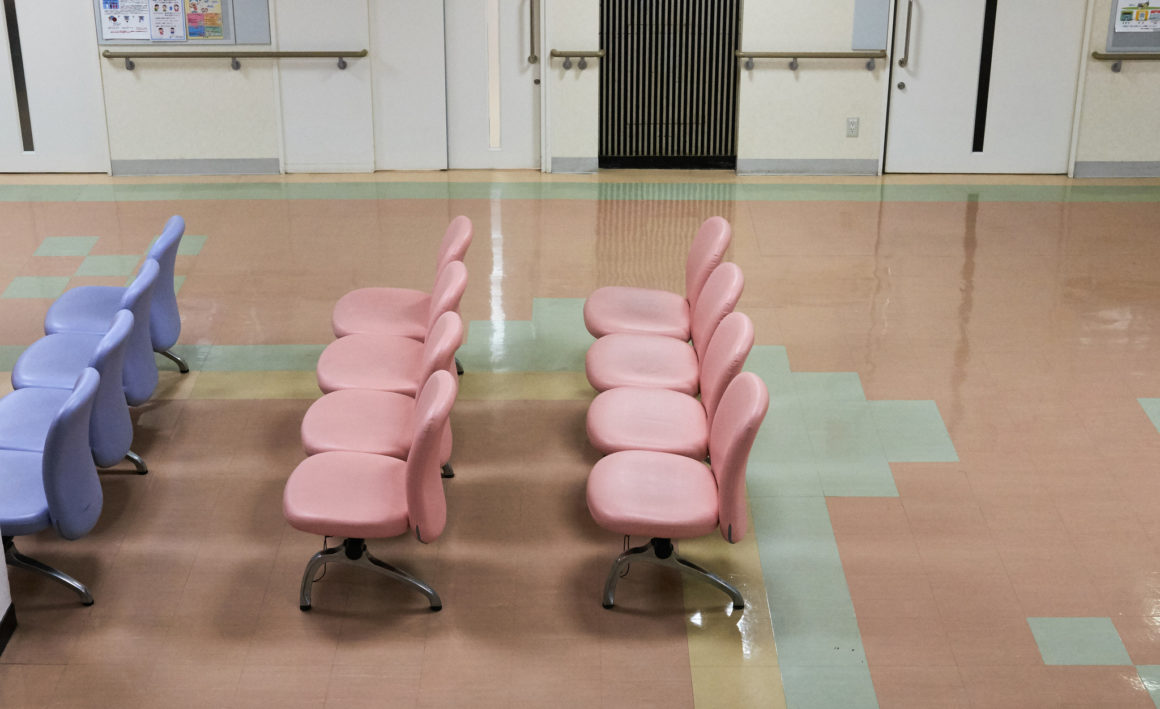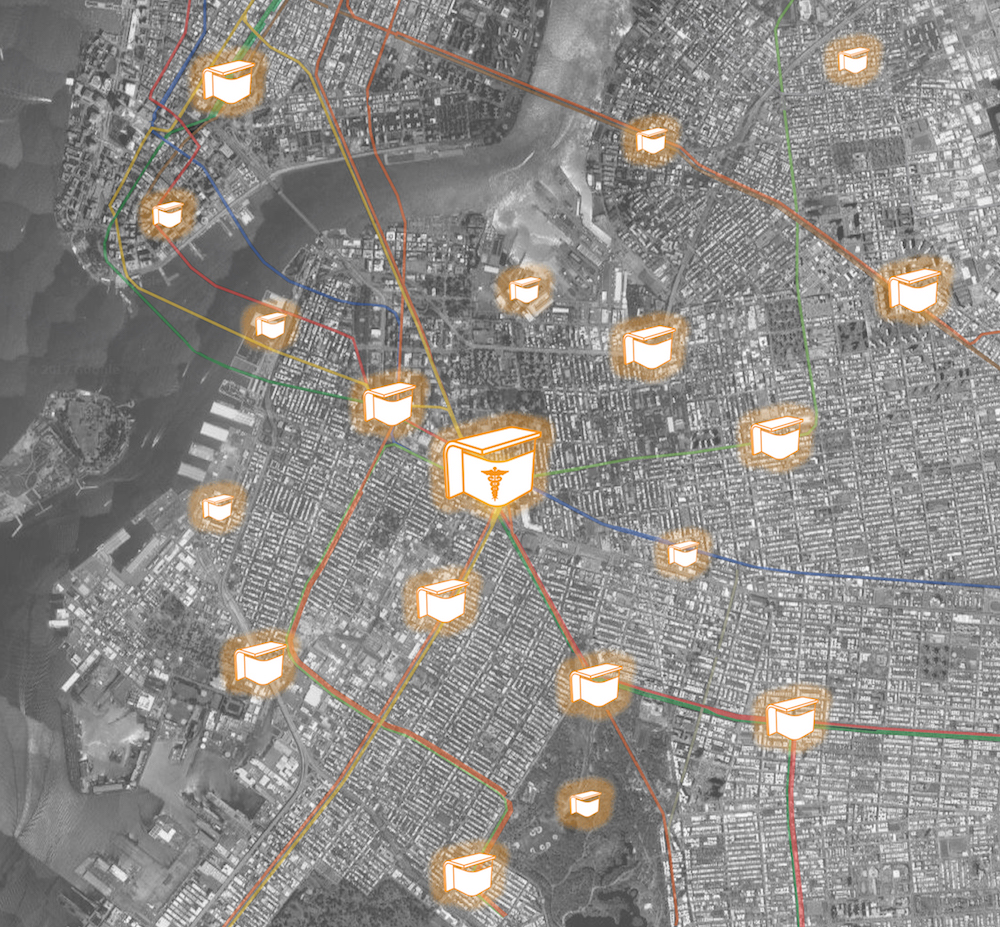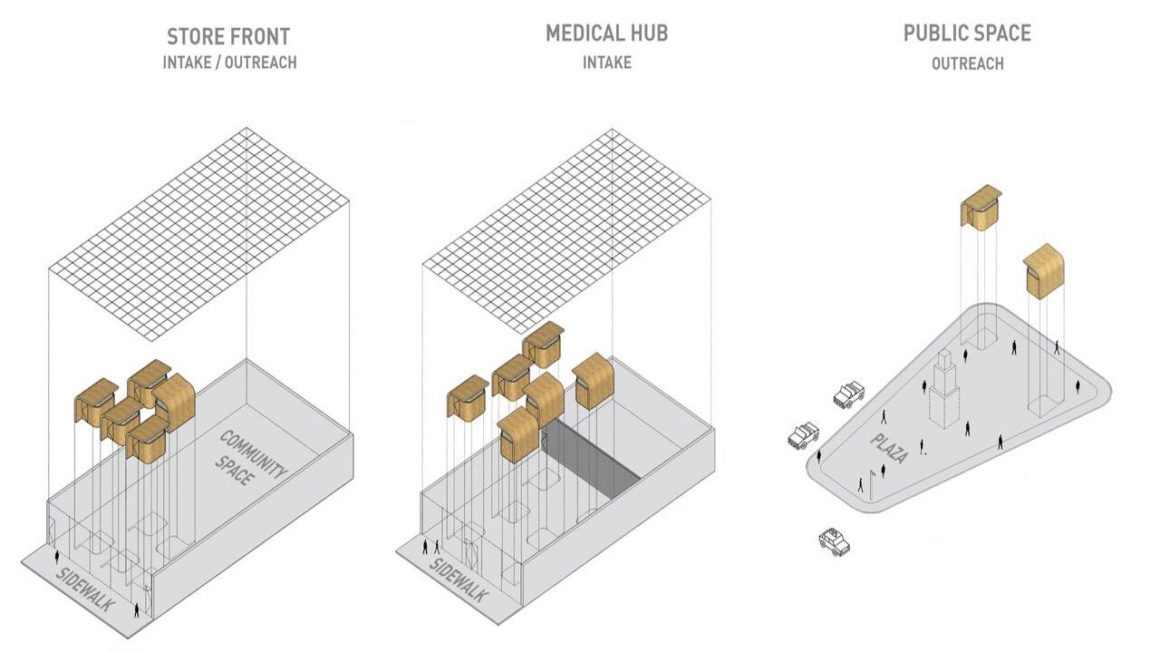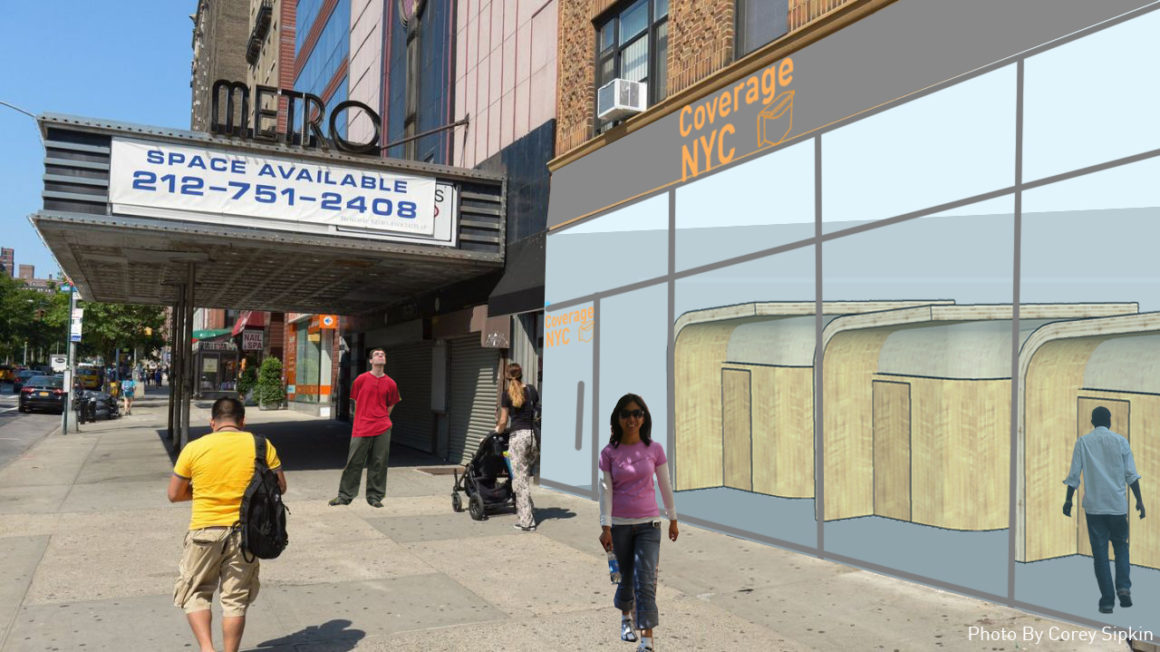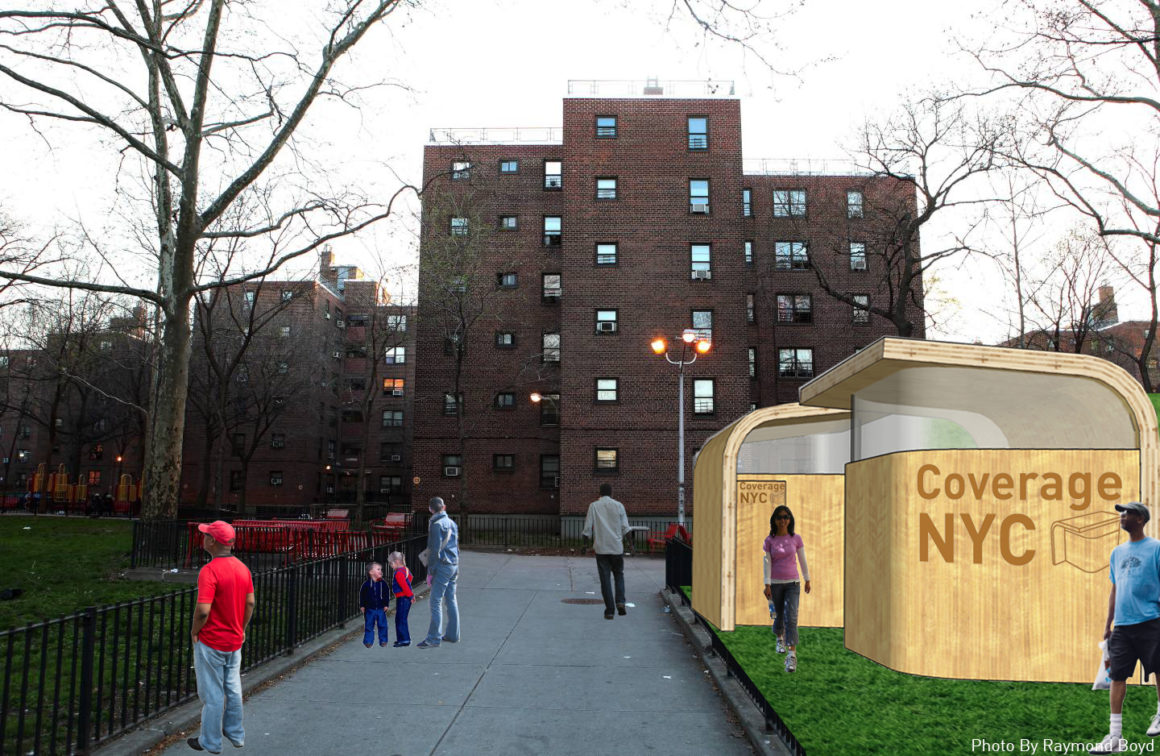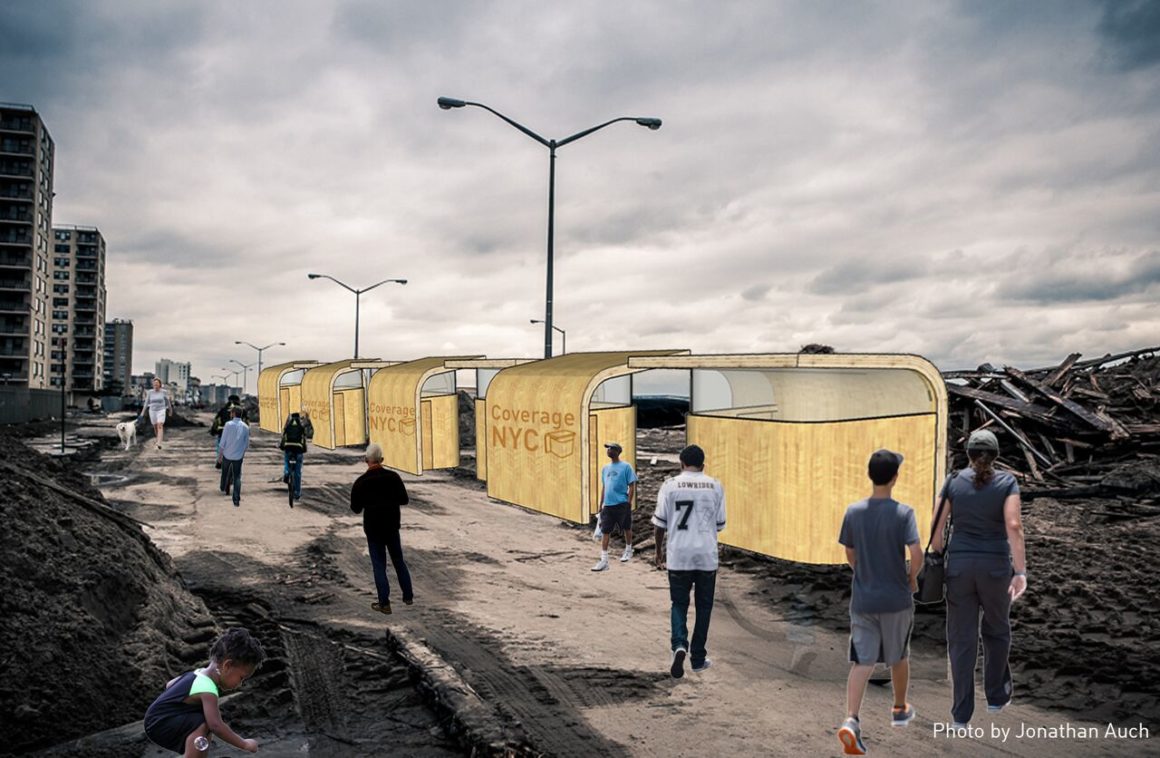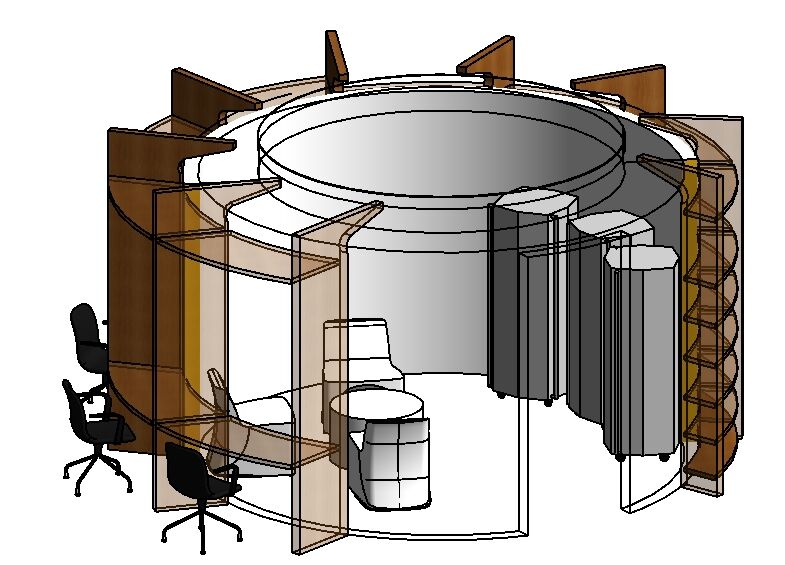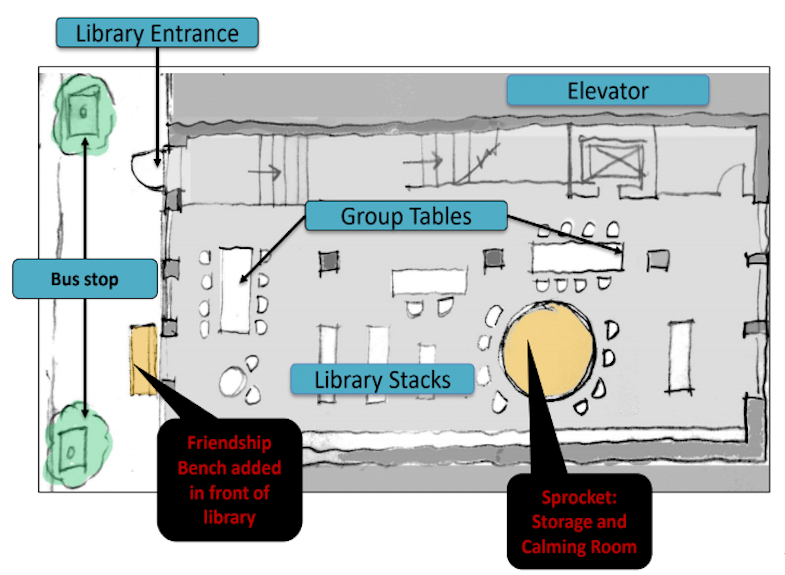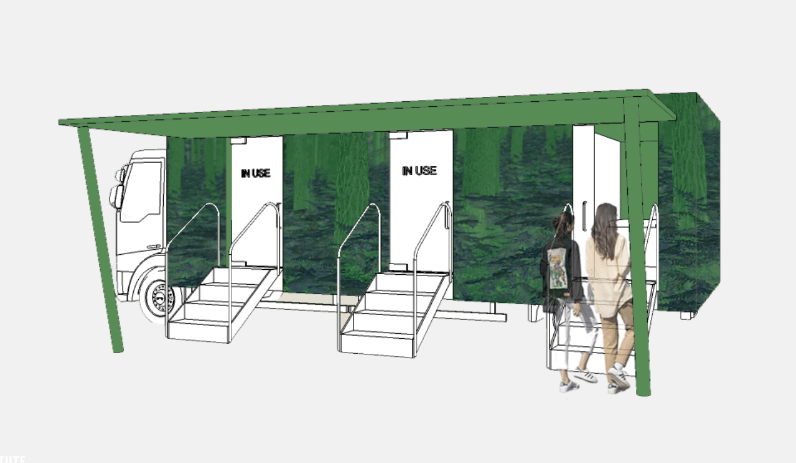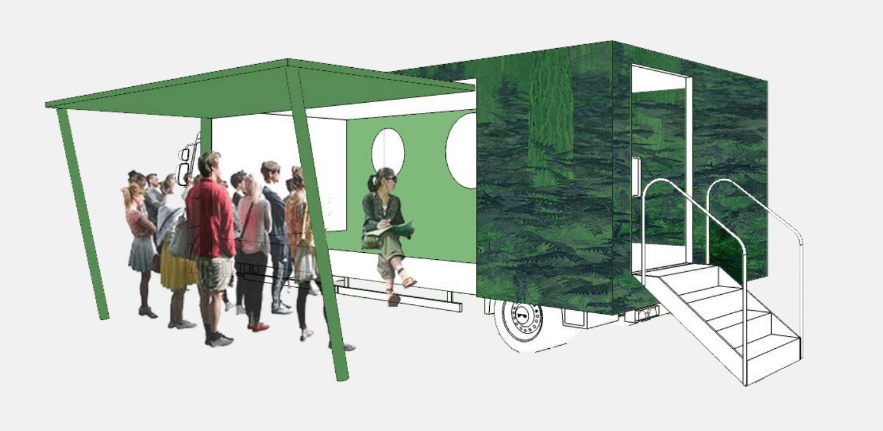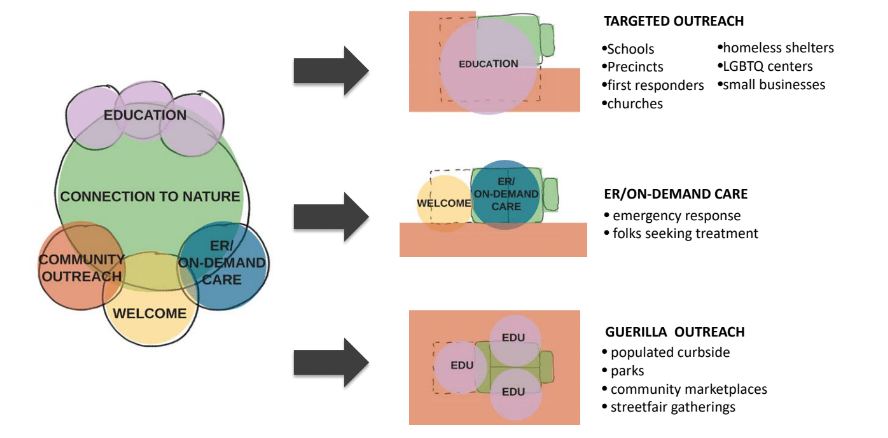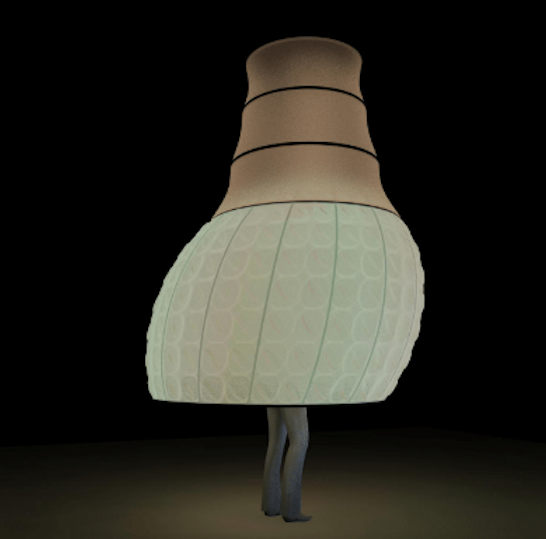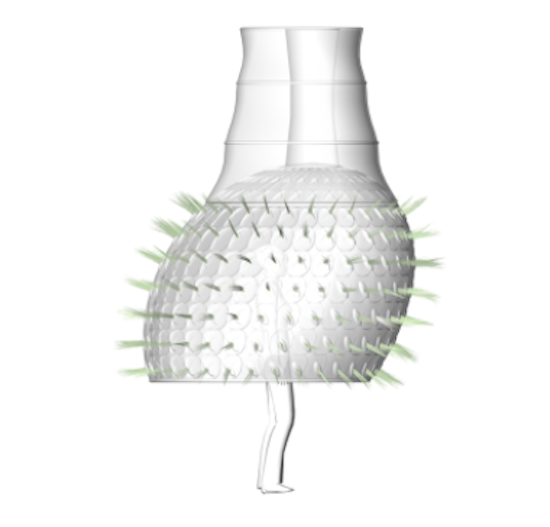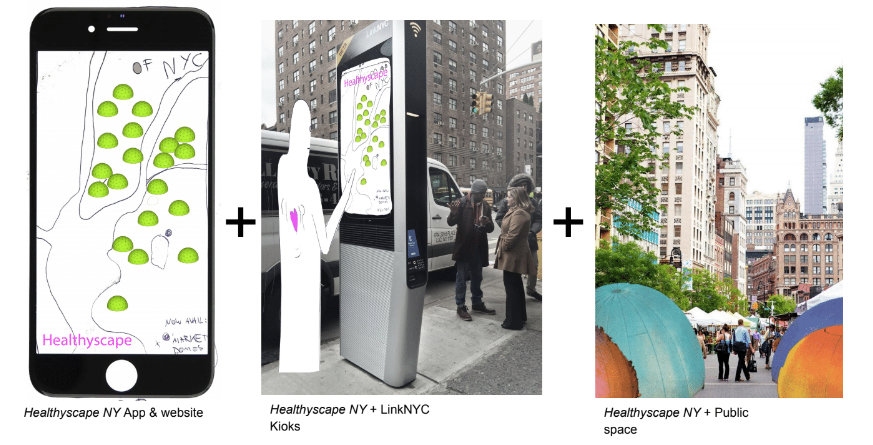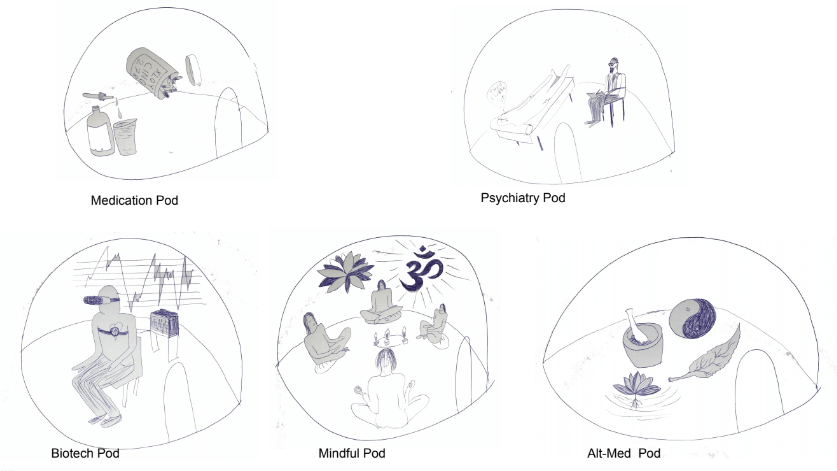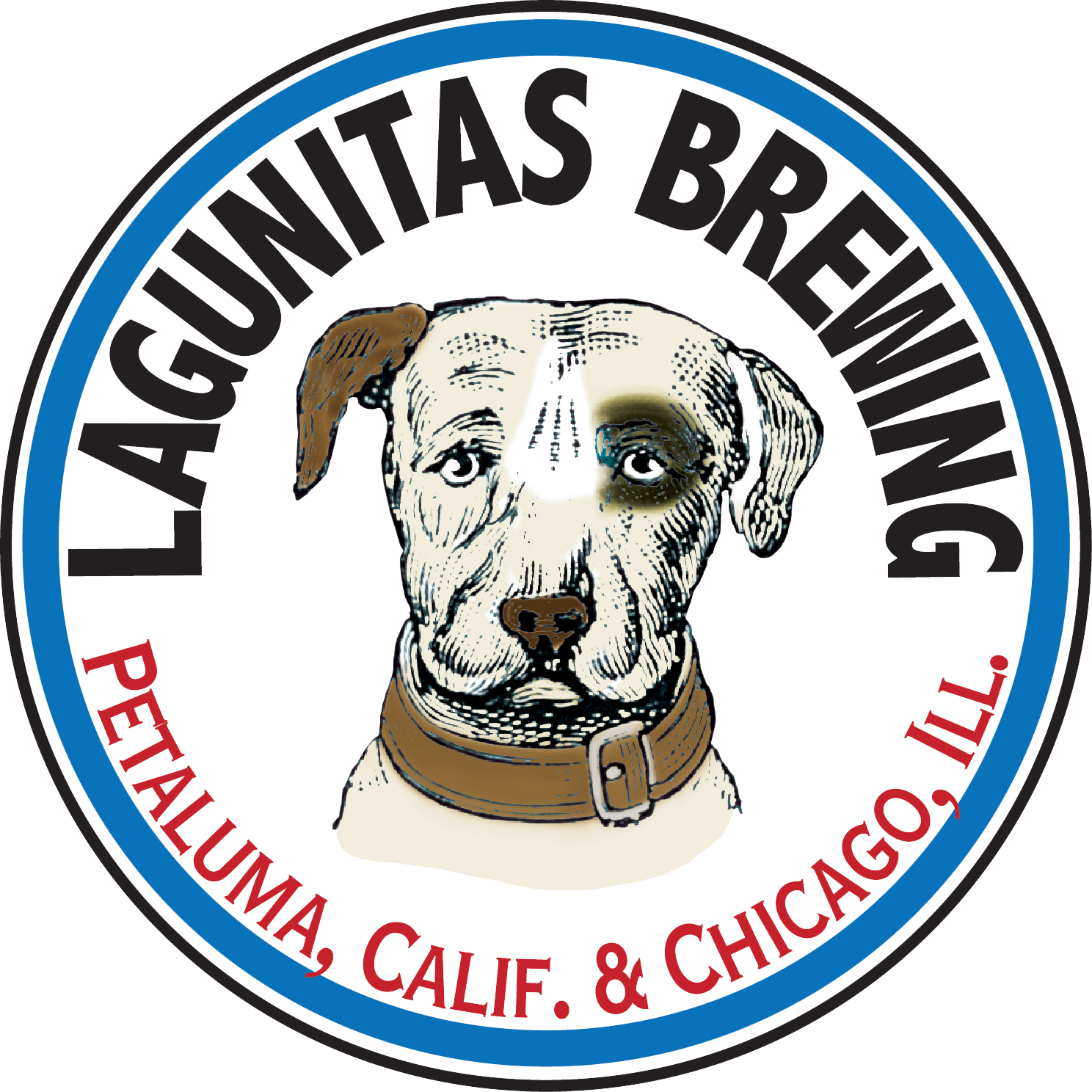Emergency Contact is a one-day flash competition that challenges interdisciplinary teams to design practical solutions for affordable, replicable neighborhood mental health treatment centers to efficiently put patients in contact with treatment.
About
For a city that prides itself on its neurosis, mental health care in New York City isn’t always easy to come by. Private therapy for routine visits is among the most expensive in the world. The number of hospital psychiatric wards to address mental health crises has diminished as hospitals transition valuable square footage to more profitable services. While lucrative urgent health-care centers proliferate along neighborhood corridors for those suffering physical injury, visible mental health care remains out of reach for many.
In a moment of crisis, many New Yorkers turn to dialing 911, and often police respond by placing would-be patients in jail rather than in doctors’ care, reinforcing systemic criminalization of mental illness. In many communities, mental illness faces continued stigmatization, and treatment offices are simply too far away.
Part of u feel ok? Health & NYC, the Van Alen fall program festival held Nov. 11 – 13, Emergency Contact is a one-day flash competition that challenges interdisciplinary teams to design practical solutions for affordable, replicable neighborhood mental health treatment centers to efficiently put patients in contact with treatment. Proposals for an archetypal public mental health treatment center will provide a street-level presence for a range of mental health services integrated within local communities, address the gap in access to mental healthcare, and help destigmatize mental illness.
Following a closed-door daytime workshop on Nov. 12 among finalist teams, a jury of design and mental health advocacy experts judged the entries and announced a winner at the conclusion of the day-long event. We accepted submissions from multidisciplinary teams from diverse fields including public health, anthropology, sociology, psychology, architecture, graphic design, visual art, and urban planning.
Background
In 2015, in partnership with First Lady Chirlane McCray, New York City launched ThriveNYC, an action plan to begin changing the way people think about mental health and the way the city government and its many partners deliver services. ThriveNYC has introduced expanded mental health-care programs, including mental health hotlines, training in mental health first aid for community leaders and members, support services meant to streamline access to treatment and therapy, and the construction of two community-diversion centers, which provide temporary housing and treatment to keep people with mental illness from unnecessary imprisonment.
ThriveNYC aims to create additional centers, and this one-day flash competition can provide ideas for what those centers might look like and interact with in their urban surroundings. A successful proposal will consider how existent services can be integrated into new neighborhood-level mental health centers.
Jury
Steve Coe, COO, Community Access
Karen Kubey, urbanist specializing in housing and health
David van der Leer, Executive Director, Van Alen Institute
Jodi Querbach, Deputy COO, Brooklyn Community Services
Laxmi Ramasubramanian, Associate Professor of Urban Planning and Policy, Hunter College; Doctoral Faculty Member, Geography and Environmental Psychology, CUNY Graduate Center
Stephen Yablon, Principal, Stephen Yablon Architecture
Winning Proposal
Coverage NYC
Team: Annie Reed, Mental Health Clinician, LCSW; Barrett Feldman, Principal PSF Projects; Jonah Pregerson, Principal PSF Projects; Evan Ortiz, Designer PSF Projects
With the aim of reducing hospital emergency room visits for psychiatric care, Coverage NYC proposes three utilizations of a modular unit. First, we envision a medical hub, meeting the need for timely medication prescription and containing six modules: Two for medical exams with EKG equipment, two phlebotomy spaces, and two consulting rooms for psychiatry. Second, we call for a storefront clinic with 5-7 units serving as therapy rooms, with additional space devoted to a larger group therapy and meditation studio. A third usage of our modules is as kiosks for community outreach, located in public spaces in underserved communities.
Finalist
The Friendship Bench and Sprocket Project
Team: Heather Clinger, Interior Designer, ZGF Architects; Robin Liu, Architect, CannonDesign; Esosa Ozigbo, Health Consultant, CannonDesign
The Friendship Bench and Sprocket Project proposes a Friendship Bench, a public bench where anyone can receive counseling by a trained community member, to be located at every public library within NYC. The community member will be on site at the friendship bench to provide counseling during library operating hours. After library services end for the day, the facility is converted to a psychiatric community center. These centers provide access to hotlines, community classes, and a calming room that operates in the evening when many neighborhood mental health centers have closed.
Finalist
TERRA CITY
Team: Valerie Farber, Principal, Spatial Medium; Jade Esplin, Design Strategist, Planner; Tori Sparks, Horticulturalist, Performing Artist; Sarah Vitti, Cultural Strategist, Nonprofit Consultant
Community Strategy (Intervention)
Brick + mortar community centers are the heart of Terra City, where patients, family members, and allies access mental health treatment, resources, and educational programming. These centers exist in partnership with trusted community health organizations throughout NYC.
Cultural Strategy (Prevention + De-Stigmatization)
Truck + mortar mobile units are the arms of Terra City, bringing the community centers to scale. Terra Mobile delivers access to treatment, resources, and education directly to communities, de-stigmatizing mental illness while building a pipeline to close the treatment gap. An integral piece of Terra City is the use of green space, providing calm and comfort.
Finalist
C.H.E.E.R Sphere
Team: Joe Chacon, Mental Health Specialist; Seth Embry, Architect; Minna N. Kelly, Designer & Planner
C.H.E.E.R Sphere is an interactive personal environment providing vital mental health services in both permanent and temporary locations, such as parks, cultural centers, libraries, and vacant storefronts to cultivate visibility and access. Composed of few components: a hanging apparatus, a membrane, and a tablet, the pods attract a variety of users through curiosity and intrigue. The tablet hosts a range of evidence-based applications, such as meditation, educational materials, and direct resources for clinical care. By combining inviting spaces with the opportunity to de-stress or seek clinical attention, the CHEER Sphere provides an all-access network of reprieve and treatment.
Finalist
Healthyscape NY
Team: Komal Kehar, architect; hannes bend, researcher & artist; Malik Wormsby, software developer; Dr. Hasan Asif, MD, psychiatrist & founder Brain Wellness Center
The governing concept for Healthyscape NY is to co-opt how greenmarkets employ a decentralized organization and inhabit public spaces. The opportunistic approach allows mental health practitioners to learn from an existing model and move quickly to implementation. Healthyscape NY are mental health ‘markets,’ an app and website to provide a greater number of people with access to mental health practitioners and related information. The services would be adaptable to each neighborhood. Healthyscape NY envisions mental health ‘markets’ would be occupied by discrete structures. These structures would be flexible in their construction but provide the required enclosure for groups or individual needs.
This event is part of u feel ok?: Health & NYC, Van Alen’s fall program festival from November 11-13 exploring: How does the shape of the city impact our health? What is the physical imprint of healthcare in a city as dense as New York? How can designers and everyday citizens create spaces for everyone to thrive? We’ll prescribe the urgent topic of health to design and other arenas like transportation, land value, and race, through four days of back-to-back debates, tours, and provocations across New York City.
